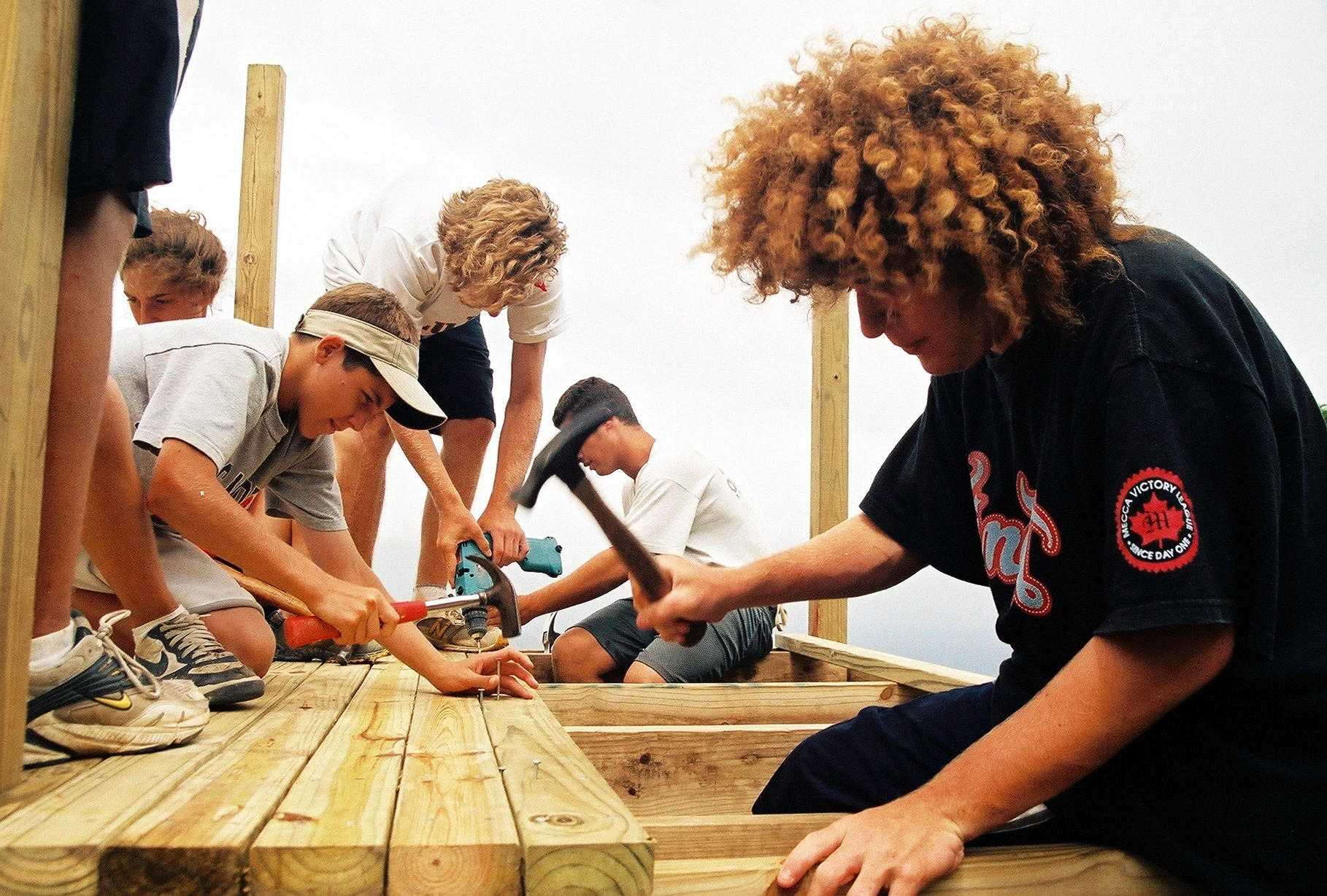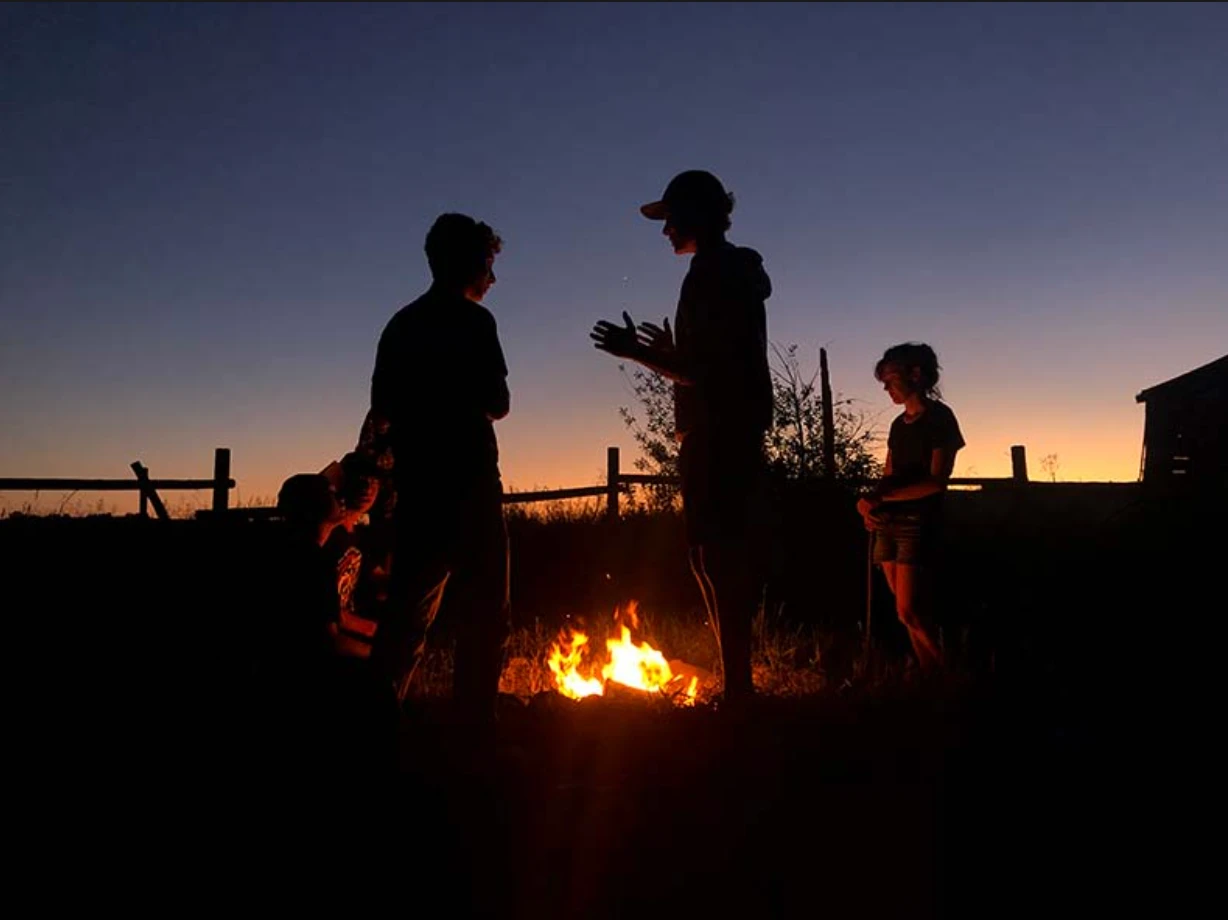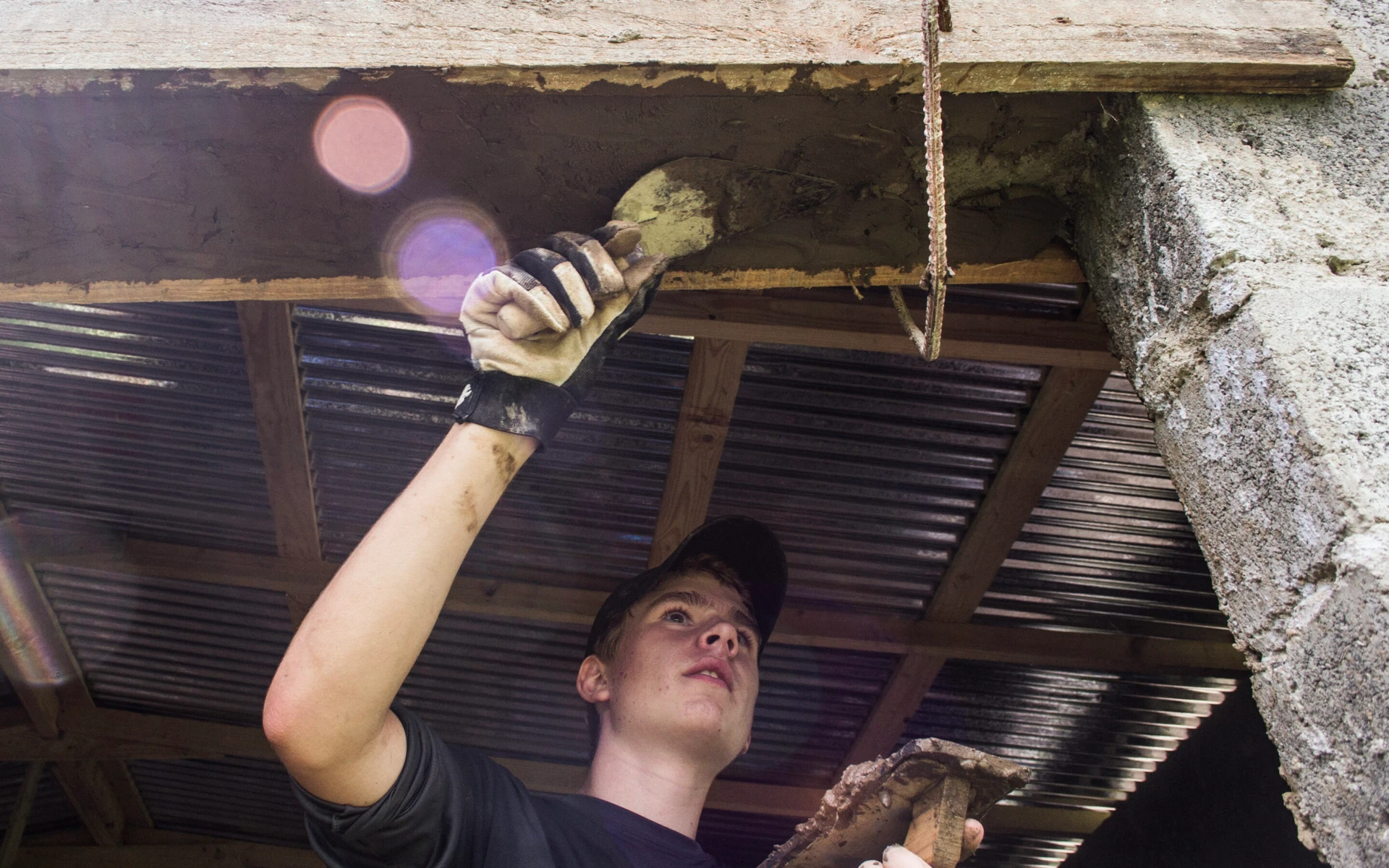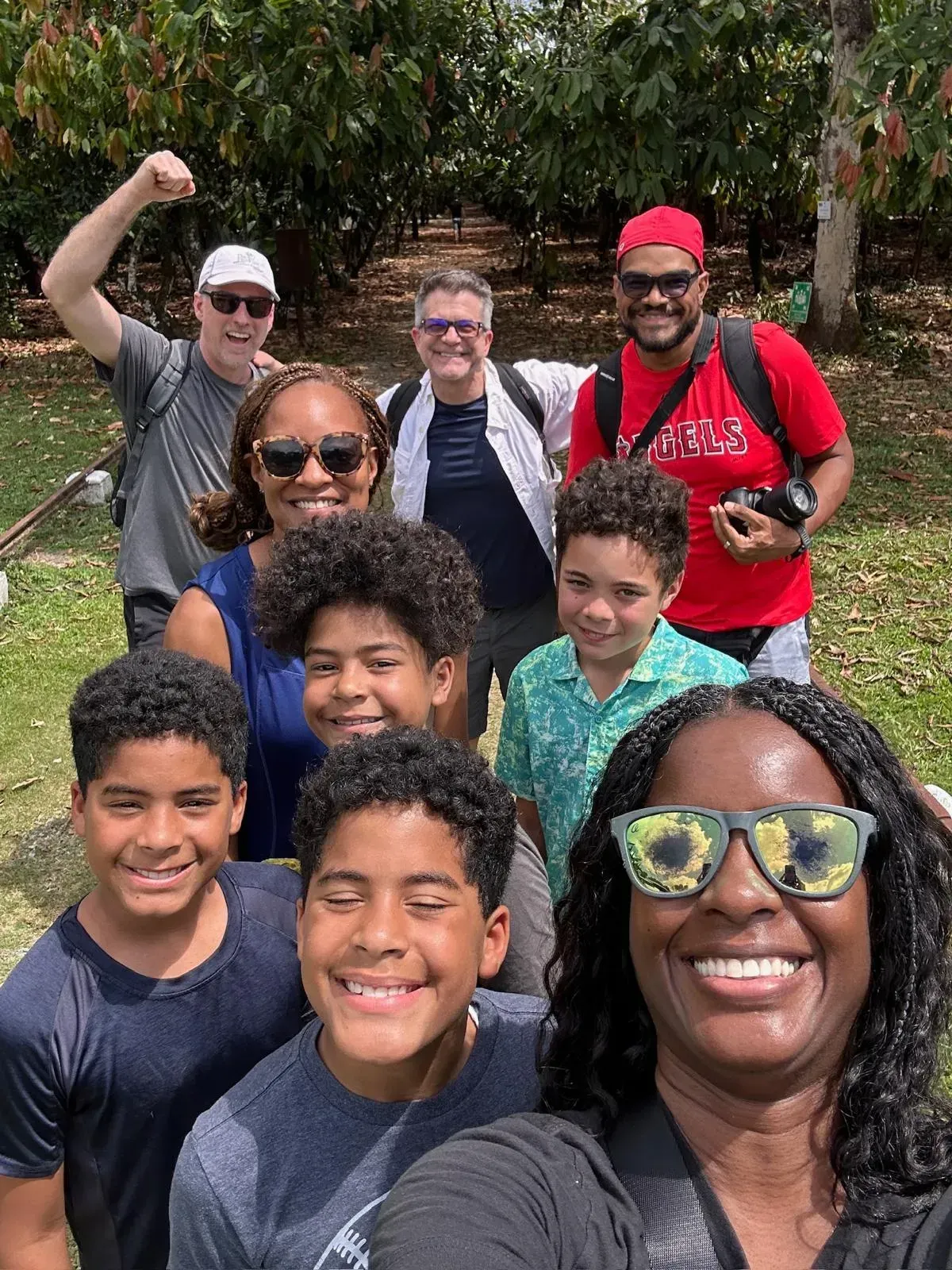VISIONS has always run tech-free summer programs for high school students (no cell phones or other electronic gadgets). While it might seem dramatic, it’s a policy that has been guided by our observations of working with young people, and in a cross-cultural setting.
We’ve seen that when teens put phones away, they genuinely connect with new friends, community partners and their surroundings. We’ve also witnessed how high-tech gadgets can accentuate the economic gap between us and local residents, who often have fewer material resources. We are a relatively affluent group living and working in small communities and high-tech items serve to accentuate our differences. This creates a chasm precisely where we want a bridge.
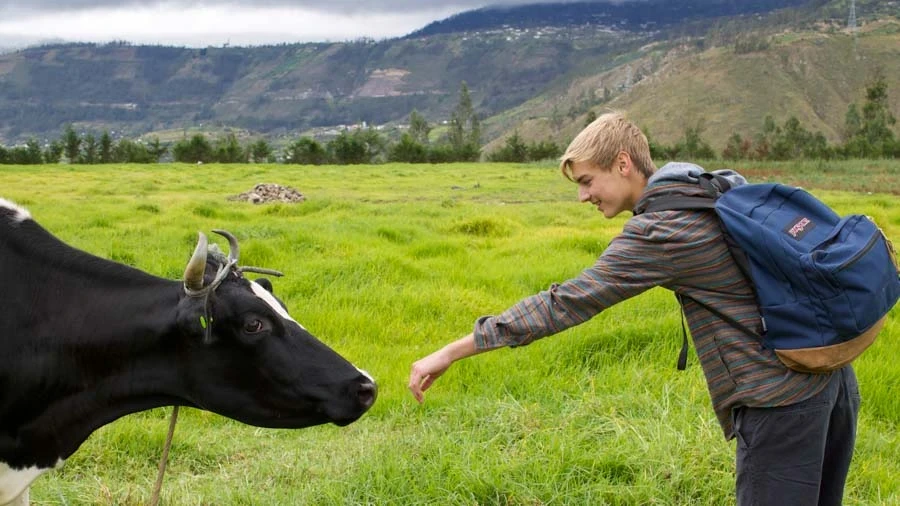
Non-Selfie Service
VISIONS approach toward service has always been that it is a vehicle for illuminating common ground and shared goals among our teens and also with members of our host communities. The experience is carefully crafted, in a no-frills backdrop in the heart of international and U.S. program locations. Service projects and cultural immersion activities are meant to develop the whole self—mind, body and spirit—while connecting sincerely with community members and friends.
Selfies, shares, likes and followers—to be frank—are diminutive of what the experience has to offer. Kids have so much that positively consumes their attention each day while on a program. And when there are blocks of downtime or drives to excursions, it’s time to read, write and converse with friends.
This isn’t to say that parts of the programs aren’t documented through photography and video—they are. We encourage kids to bring cameras as long as they aren’t part of a smart device, and each program has a group camera that leaders and kids can use. We post a few images and brief updates a few times a week for parents to see, and group camera images are put into a shared album for kids at the end of the program.
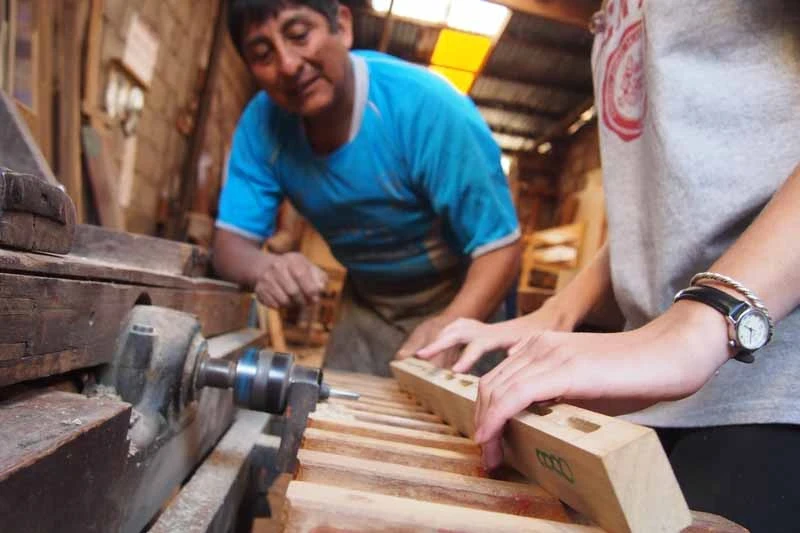
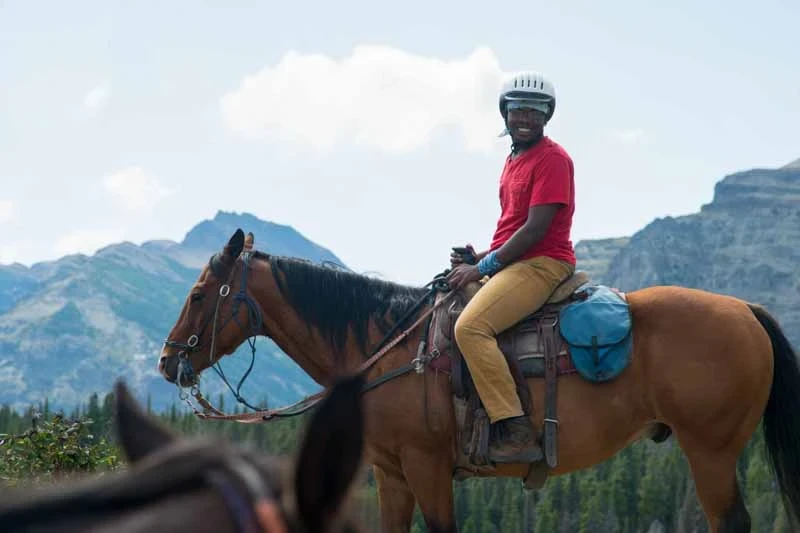
Leaders are also largely tech free during programs and they arrive to the job knowing they’ll need to put their long-distance digital connections aside in order to be present with the group of kids, community and program. With that, leaders don’t blog from the field or post daily updates, though they do have phones for program logistics needs and of course we are in touch with parents if there is a trip to the clinic or other warranted need to be in touch.
It wasn’t that many years ago that VISIONS tech policy received regular pushback and was counter to common approaches among travel organizations. It’s promising that “no tech” is no longer an anomaly, demonstrating the growing awareness of the downsides of constant connectivity. In addition to creating a higher quality experience during the program itself, we’ve found that the screen time hiatus ends up being a habit that has some staying power once home.
It’s common that we will hear from kids well after the program has ended that they’ve curbed their screen time, even canceled social media accounts.This is also captured from notes we receive from parents: “She is maintaining the values that were instilled in her during the program. As of today the TV has not been turned on at our house and the phone time has been limited. With sincere appreciation, Kathy T.”
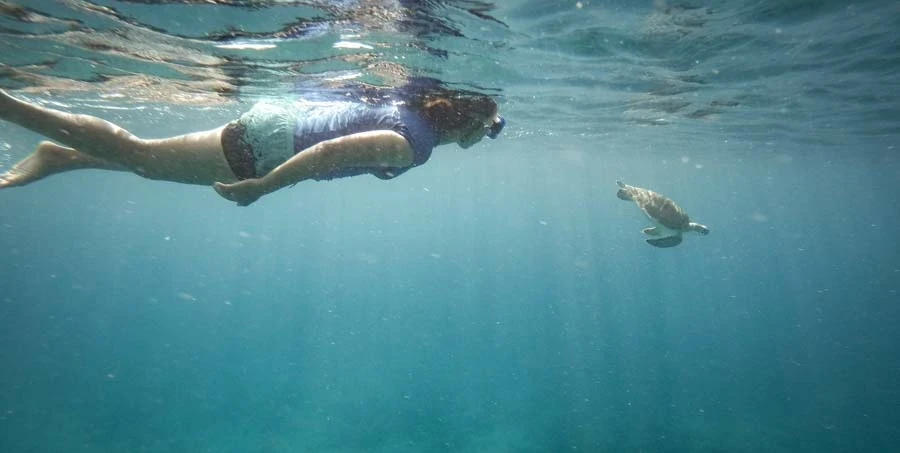
Building New Habits
It’s not that we believe technology is inherently bad. At its best, the internet opens up the world, creates opportunities and expands access to important ideas and alternative points of view— all things we strive toward at VISIONS.
But we also know that technology has a downside, and an increasing amount of studies and anecdotal evidence have shown the grave underbelly—particularly with respect to social media and particularly for young people, whose lives have been intertwined with the pressures that the online world serves up while frontal cortices and social learning are still developing.
The growing consensus is that the benefits of technology must be weighed against their costs. At VISIONS, we believe living, working and spending time with new friends in an unfamiliar culture—without the distraction of personal technology—will enhance the vivid memories and deep connections that nurture young people. With this, forming habits to ensure we’re regularly unplugging is an important part of staying connected to and engaged with the world around us. We believe our programs play a role in helping kids form healthy habits concerning technology, and as such, we continue to ensure our programs are tech-free.
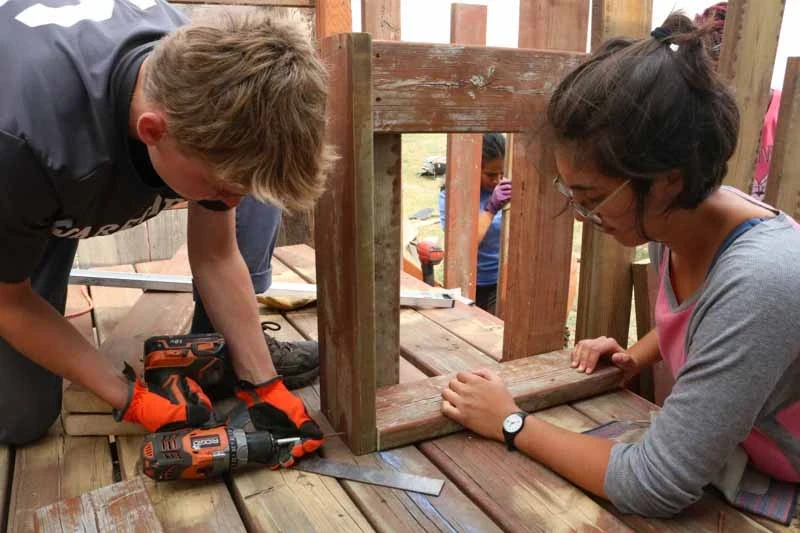
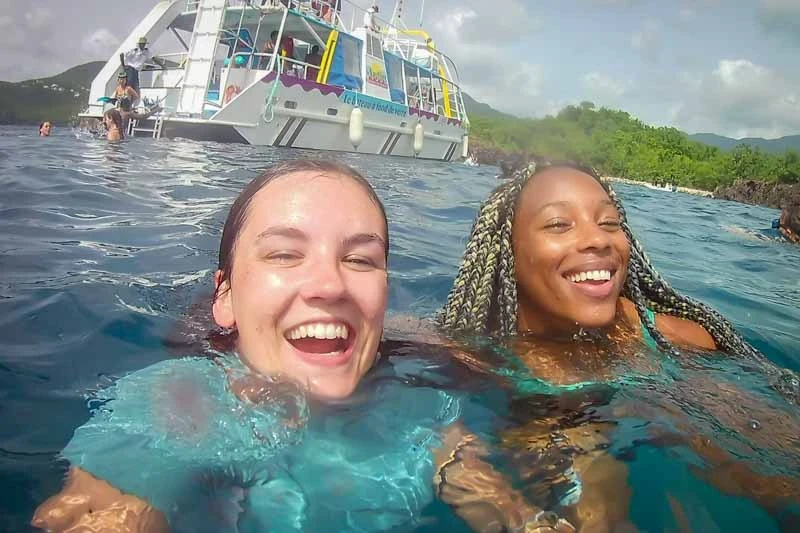
Kid & Parent Perspectives
“The lack of phones seemed challenging at first, but it made my trip much more enjoyable and allowed me to get to know everyone better.” —Robby P., British Virgin Islands
“Up until my trip to Virgin Gorda, I thought everyone had an iPhone, laptop and an iPad. But people in other places don’t live like I do. I realized how fortunate I am.” —Amelia F., British Virgin Islands
“My month in Dominica was probably the most challenging, exciting, rewarding and happiest time in my life. It’s been two years and a day doesn’t go by where I don’t think of it. In Dominica my cell phone, iPod, and TV had been left behind; they were replaced with card games, kickball, and volunteer work. I had previously thought my electronics connected me to others, but the month proved me wrong. I also saw how Dominicans were not upset about their lack of modern amenities, but instead focused on building relationships, enjoying life, and relaxing. In Dominica, I was happier than I had ever been.” —Irene O., Dominica (retired site)
“Mine is a different child. It is like she grew 10 years. Her insight is remarkable. I could not thank you enough for this chance and I can’t be thankful enough for the departure from her ex-dear phone!” —Maria G., Ecuador
“We had hoped for a few things to happen through this experience:
1) greater independence — for Katie to step outside of her comfort zone and challenge herself
2) better understanding of others and her relationship to the world around her
3) distance from cell phones and chance to connect with people and place personally.
VISIONS helped her to accomplish all three.”
—Whitney B., Montana Northern Cheyenne
“Going into VISIONS it was so hard to know what to expect, but we all really quickly learned from day 1 we were going to be part of the Urubamba community. Urubmaba feels like a second home now because of how much we got to connect. And not having phones was the best, we were always with each other and we saw tons of other programs with their phones and it looked like it sucked.” —Julia R. Peru
“My experience was the opposite of what I was expecting, for all the right reasons. I’ve never been so comfortable with a group of people that I’ve known for such a short amount of time. I’ve never been happier and worry free in my life. Being away from technology and being cut off from the world can sound horrible when I describe it to my friends at home, but I wouldn’t have wanted it any other way.” —Caroline F., Ecuador
“She came home and said ‘best summer ever!’ Thank you for providing a clean air, free of technology, free of judgment summer for my daughter.” —Melissa A., Montana Blackfeet
How can you navigate summer program tech policies?
The scope of youth summer programs and camps is mind boggling. There are trips focused on academics, on every aspect of the arts and sciences; old-fashioned traditional camps and outdoor wilderness challenges; camps for sailing, skiing, skateboarding, volunteering abroad, cultural immersion, eco-discovery, and much more, including technology itself. While technology policies may differ, generally speaking, technology is either allowed or not. And whatever the policy, however limited the use, the honest program will tell you that managing “smartphones, music players, tablets, e-readers…” is a headache.
As with every important investment, do the research, get a feel for the context in which a program’s philosophy and goals play out in terms of technology policy. How strong is the culture? The context of the program always matters, the sheer physical environment, the nuts and bolts of daily life, the essential soundness of blueprint for the experience, the practical and intentional ways that a summer program ensures that goals for its participants are well met.
Ask yourself…
How clear is the program’s technology policy relative to its core philosophy and goals? Whatever the technology policy, how well is it managed and does the program address this issue with other than a statement?
- What are the protocols that govern technology in daily program life?
- Do they make practical sense and are they enforced by staff leaders?
- Take time to clarify your and your teen’s goals and wishes for the summer. What does my teen need, want, or what would be just plain good this particular summer?
- Find the Right Program
Before doing anything else, though, the first and fundamental question parents might ask themselves is how do you define and quantify quality? Once you’re clear about this and after taking the above into consideration, you and your teen will find the best-fit summer experience, regardless of how much or little technological gadgetry is allowed.



